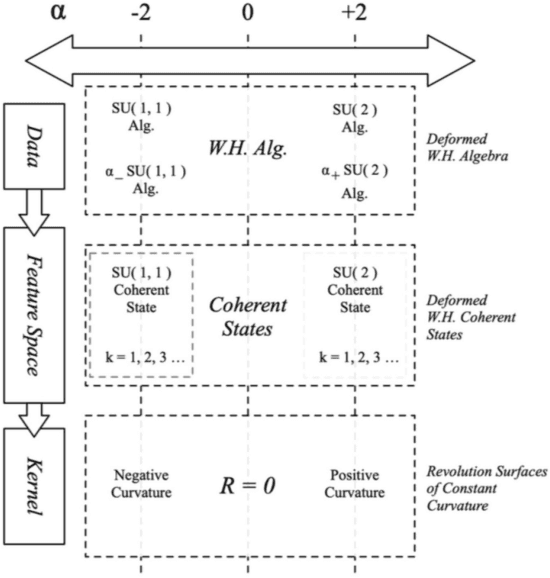Construction of 'Support Vector' Machine Feature Spaces via Deformed Weyl-Heisenberg Algebra
Paper and Code
Jun 02, 2020



This paper uses deformed coherent states, based on a deformed Weyl-Heisenberg algebra that unifies the well-known SU(2), Weyl-Heisenberg, and SU(1,1) groups, through a common parameter. We show that deformed coherent states provide the theoretical foundation of a meta-kernel function, that is a kernel which in turn defines kernel functions. Kernel functions drive developments in the field of machine learning and the meta-kernel function presented in this paper opens new theoretical avenues for the definition and exploration of kernel functions. The meta-kernel function applies associated revolution surfaces as feature spaces identified with non-linear coherent states. An empirical investigation compares the deformed SU(2) and SU(1,1) kernels derived from the meta-kernel which shows performance similar to the Radial Basis kernel, and offers new insights (based on the deformed Weyl-Heisenberg algebra).
 Add to Chrome
Add to Chrome Add to Firefox
Add to Firefox Add to Edge
Add to Edge